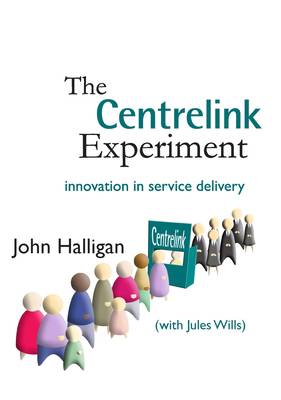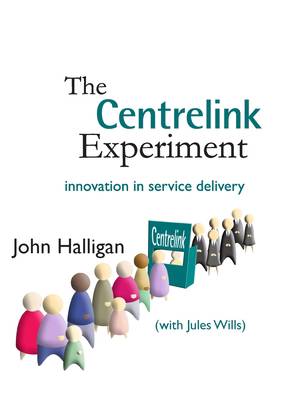
- Retrait gratuit dans votre magasin Club
- 7.000.000 titres dans notre catalogue
- Payer en toute sécurité
- Toujours un magasin près de chez vous
- Retrait gratuit dans votre magasin Club
- 7.000.0000 titres dans notre catalogue
- Payer en toute sécurité
- Toujours un magasin près de chez vous
45,95 €
+ 91 points
Description
Centrelink was established in 1997 as part of the Howard government's bold experiment in re-framing social policy and re-shaping service delivery. Centrelink was the embodiment of a key tenet of the Howard vision for public service: a specialised service delivery 'provider' agency separated from the policy functions of the 'purchaser'. Carved out of a monolithic Department of Social Security, Centrelink was established along 'business lines' operating 320 service centres and delivering payments to 10 million Australians. Although enjoying 'monopoly provider' status, the organisation was required to deliver services to many different clients on behalf of its 'purchasing departments' (up to 25 in total) under the terms of quasi-contractual service agreements. It was meant to demonstrate a greater level of both transparency and accountability for the administration of payments amounting to over $60 billion of Commonwealth expenditure. For many years there was a real 'buzz' around the Centrelink experiment and staff and clients were generally enthusiastic about the transformation. However, after around eight years, the experiment was reined in and Centrelink was placed under closer ministerial direction and under a new managing department. The experiment continues, but its trajectory reflects the different pressures impacting on such dedicated 'services delivery agencies'. John Halligan, Professor of Government at the University of Canberra, is a foremost Australian expert on public sector governance and has published extensively on the evolution, form and behaviour of the public sectors in Australia and overseas. This volume is the culmination of an exhaustive empirical study of the origins and experience of 'the Centrelink Experiment'. I commend this book to researchers, policy practitioners and students with an interest in policy innovation, change management and the realpolitik of public sector reform.
Spécifications
Parties prenantes
- Auteur(s) :
- Editeur:
Contenu
- Nombre de pages :
- 236
- Langue:
- Anglais
- Collection :
Caractéristiques
- EAN:
- 9781921536427
- Date de parution :
- 01-12-08
- Format:
- Livre broché
- Format numérique:
- Trade paperback (VS)
- Dimensions :
- 176 mm x 250 mm
- Poids :
- 544 g

Les avis
Nous publions uniquement les avis qui respectent les conditions requises. Consultez nos conditions pour les avis.






